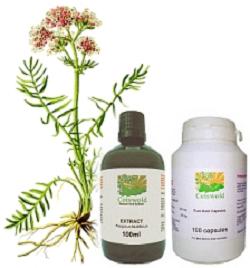Help Post-menopausal Women Sleep!
Reference:Fern�ndez-San-Mart�n MI, et al Effectiveness of Valerian on insomnia: a meta-analysis of randomized placebo-controlled trials. Sleep Med. 2010 Jun;11(6):505-11. & Reference: Taavoni S, et al Effect of valerian on sleep quality in postmenopausal women: a randomized placebo-controlled clinical trial. Menopause. 2011 Sep;18(9):951-5.
The stats are that about 50% of post-menopausal women experience some form of sleep disturbances.
Should they take Camomile tea or prescription sleep medications? Should they wear earplugs or exercise for 30 minutes a day? Use a CPAP machine or change their mattress? There are literally hundreds of possible treatments for insomnia proposed by both mainstream and alternative medicine. The truth is that every individual is unique and requires a unique intervention to help them sleep.
I want to share with you one alternative to prescription sleep medication called Valerian, which unlike prescription sleep meds has no known side effects, it’s not addictive, and can be taken safely long-term and daily. Valerian is a perennial flowering plant that Hippocrates recommended for its sedative effects.
A meta-analysis of 18 RCTs suggests that Hippocrates was to some degree correct. Valerian proves effective for subjectively improving insomnia, however its objective effectiveness is still debatable.
The most recent (2011) RCT consisted of 100 post-menopausal women aged 50 to 60 years who were experiencing insomnia.
After 4 weeks, 30% of the women taking 530 mg of Valerian had improved sleep versus only 4% of those who took the placebo pill (P < 0.001).
Clinical Application: Tell your post-menopausal patients who report of poor sleep to speak with their MD about Valerian. As a PT, I would not recommend them to take it without consulting an MD, ND or a Pharmacist first!
Posted on: April 09, 2012
Categories: Modalities / Meds / Supplements


